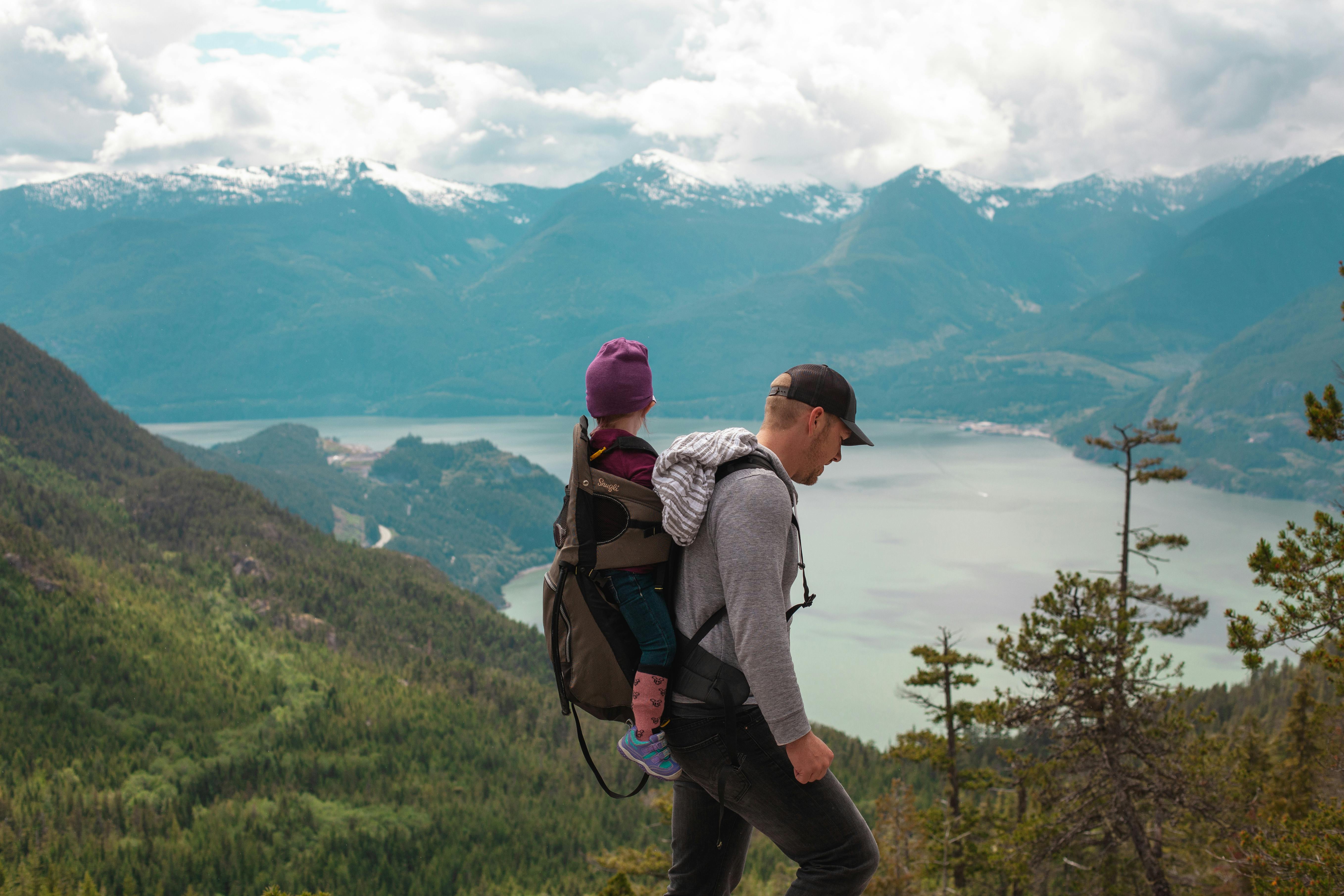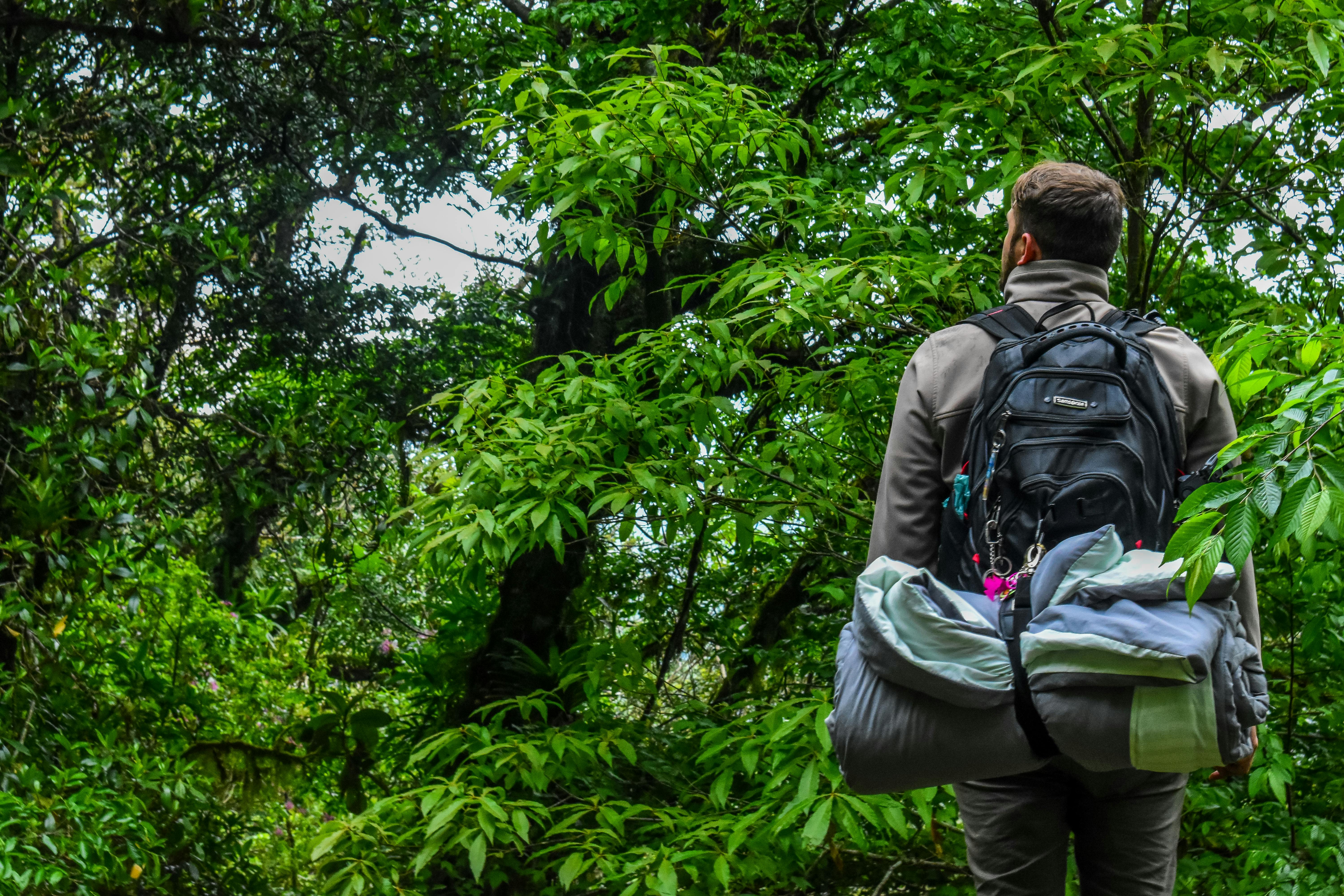- Home
- The Littlbug Blog
- camping stove
The Littlbug Blog
Recent Posts
Backpacking with Little Bugs: Tips for a Successful Family Adventure
Posted by on
Hey fellow adventurers! Do you dream of sharing the magic of the wilderness with your kids, watching their eyes widen at a soaring eagle or their faces light up at a babbling brook? Backpacking as a family can be an incredibly rewarding experience, forging deep connections with each other, and passing your love of nature down to the next generation. Sure, the idea might conjure up images of tired little legs and maybe a few meltdowns, but with a little mindful planning, it can become a treasure trove of shared memories and life lessons.

At Littlbug, we believe that even the smallest adventurers can experience the joy of carrying their own (appropriately sized!) pack and exploring the trails. It's about more than just reaching a destination; it's about the journey together, the discoveries made along the way, and the resilience built with every step. So, let's ditch the stress and dive into some practical tips and inspiring ideas for making your family backpacking trip a resounding success.
Setting the Stage: Preparation is Key
The foundation of a happy family backpacking trip lies in thoughtful preparation that considers everyone's needs and abilities:
- Start Small and Local: Don't aim for a multi-day trek in the backcountry for your first family backpacking adventure. Begin with shorter, local trails you're familiar with. An overnight trip with a relatively easy hike to a designated campsite is a fantastic starting point. This allows everyone to get a feel for backpacking without feeling overwhelmed.
- Involve the Kids in Planning: From choosing the trail to packing their own small backpacks (with your guidance, of course!), involve your children in the planning process. This will help to foster excitement and a sense of ownership over the adventure. Let them pick out a special trail snack or a small toy to bring.
- Gear Up Smart (and Kid-Friendly): Invest in lightweight gear whenever possible. For kids, this is especially crucial. Little Bug packs are designed with their comfort and size in mind, allowing them to carry their essentials without feeling burdened. Ensure their sleeping bags and pads are appropriate for the expected temperatures. Consider renting gear for the first few trips to see what works best for your family.
- Practice Makes (Almost) Perfect: Before hitting the trail, have a "practice pack" day. Let the kids wear their loaded packs around the house or on a short walk in the neighborhood. This helps them get accustomed to the weight and allows you to make any necessary adjustments.
- Talk About Expectations (Gently): Have an open and honest conversation with your kids about what backpacking entails. Explain that there will be hiking, carrying their own gear, sleeping outside, and following Leave No Trace principles. Frame it as an exciting adventure, focusing on the fun aspects like seeing wildlife and sleeping under the stars.
Hitting the Trail: Pacing, Patience, and Playfulness
Once you're on the trail, remember that this is a different pace than your usual family outings. Embrace the journey and prioritize enjoyment over mileage:
- Slow and Steady Wins the Race: Hike at the pace of your slowest little bug. Frequent breaks are essential. Let the kids set the rhythm, and don't push them too hard. Remember, the goal is to foster a love for backpacking, not to break any speed records.
- Make it an Adventure, Not a Chore: Turn the hike into a game. Play "I Spy," look for animal tracks, identify different types of trees and flowers. Encourage curiosity and exploration. Even a simple scavenger hunt can keep little minds engaged.
- Snack Breaks are Sacred: Pack plenty of high-energy snacks that are easy to access. Trail mix, granola bars, dried fruit, and even a special treat can work wonders for morale. Don't underestimate the power of a well-timed snack break!
- Embrace the Detours (Within Reason): If a fascinating bug or a beautiful wildflower catches their attention, take a moment to explore. These spontaneous discoveries are often the most memorable parts of the trip.
- Little Legs, Little Loads: Ensure your kids' packs are truly appropriate for their size and strength. They should only be carrying a small portion of the overall gear, focusing on personal items, snacks, and maybe a lightweight sleeping bag.
- Mindful Moments on the Trail: Encourage moments of quiet observation. Stop by a scenic overlook and simply listen to the sounds of nature together. Point out interesting details – the way the light filters through the leaves, the texture of a mossy rock. These mindful pauses help cultivate a deeper appreciation for the present moment.
Camp Life: Creating a Cozy Wilderness Home
Setting up and enjoying your campsite is another opportunity for shared learning and connection:
- Teamwork Makes the Dream Work: Involve the kids in setting up camp. Even young children can help gather small sticks for the fire, lay out sleeping pads, or organize their belongings in the tent. It's not a chore, it's teamwork!
- Keep it Simple and Safe: Choose a campsite that is relatively flat and safe. Establish clear boundaries for the kids to explore within. Review basic safety rules, such as staying away from the fire and being aware of their surroundings.
- Story Time Under the Stars: As the day winds down, gather around the campfire (if permitted and safe) for stories and songs. Sharing tales in the quiet of the wilderness creates a magical and lasting memory.
- Embrace the Quiet: Bedtime in the wilderness can be a unique experience. The sounds of nature can be both soothing and new. Talk about the sounds you hear – the crickets chirping, the wind in the trees. Encourage a sense of wonder and peacefulness.
- Nourish your Bodies: Both big adventurers and small adventurerers need a good meal after putting some miles in on the trail. With a Littlbug Stove in your pack, you're halfway to a hot meal with the whole family! And the extra hands to help gather sticks and twigs is a bonus!
Addressing Common Concerns (with a Mindful Approach):
It's natural to have concerns about backpacking with kids. Here are a few common ones and how to approach them mindfully:
- Tired Legs and Whining: This is inevitable at some point. Be prepared with extra encouragement, fun distractions, and the promise of a special treat at the next break. Consider having a lightweight carrier or sling for very young children for short stretches.
- Fear of the Unknown (Bugs, Animals): Address these fears calmly and factually. Talk about the importance of insect repellent and how to react safely if you encounter wildlife. Focus on the beauty of the natural world rather than dwelling on potential dangers.
- Meltdowns and Frustration: Remember that kids can get overwhelmed when tired or hungry. Practice patience and empathy, children AND adults get hangry from time to time. Take a break, offer a snack, and acknowledge their feelings. Sometimes, a simple change of scenery or a silly song can work wonders.
- Staying Safe: Prioritize safety above all else. Carry a well-stocked first-aid kit, know basic wilderness first aid, and have a plan for communication (even if it's just knowing you're in an area with cell service).
The Enduring Rewards:
Backpacking with kids isn't always easy, but the rewards are immeasurable. You'll witness their resilience grow with every mile, their connection to nature deepen with every discovery, and your bond as a family strengthen with every shared experience. These adventures create memories that will last a lifetime, a love for the outdoors and a sense of capability that extends far beyond the trail.
So, take a deep breath, embrace the journey, and trust in the inherent curiosity and wonder of your little bugs. With mindful preparation, a patient heart, and a spirit of adventure, your family backpacking trip can be a truly successful and deeply rewarding experience. Happy trails, little and big adventurers!
When it comes to outdoor skills the more you bring along, the less you have to carry. Skills don't break and they're never left behind. They don’t leak, they don't tear, and they don’t get wet!

Backpacking and Mindfulness: Finding Presence One Step at a Time
Hey there, fellow wanderers and seekers. Ever feel like life just… rushes by? Like you’re constantly chasing the next thing, the next notification, the next to-do on a never-ending list? Yeah, me too. But there’s this incredible space I’ve found, a way to gently nudge myself back into the present moment, and it often involves [...]
My First Solo Backpacking Trip
Last summer, I was visiting family, and my niece, Libby, shared with me that she was thinking about taking up hiking as a way to detach from her demanding career. Being the family’s de facto hiking enthusiast, I immediately wanted to give her ALL the information and tips that I’ve learned over the years. She [...]

Leave No Trace Principles: Backpacking Responsibly
As outdoor enthusiasts, we all have a responsibility to protect and preserve the natural environments we love. One of the best ways to do this is to follow the Leave No Trace principles. Leave No Trace is a set of seven principles that help us minimize our impact on the environment when we're spending time in [...]

Essential Backpacking First Aid Kit: What to Pack and How to Use It
Okay, adventurers, let's talk about something nobody wants to think about, but everyone needs to be prepared for: injuries on the trail. Nobody sets out on a backpacking trip expecting to sprain an ankle or get stung by a bee, but hey, that's the wilderness for you! It's unpredictable. That's why a well-stocked first aid [...]
The Camping Show Hosted by C.W. Goetz Outdoors
We’re excited to announce that Littlbug Enterprises founder, Kent Hering, will be a guest on The Camping Show, a podcast by C.W. Goetz Outdoors, to talk about the Littlbug camp stoves and their accessories!The Camping ShowIn this episode, they’ll be exploring the benefits of stick stoves. If you’re already a Littlbug user, you’ll probably know many of [...]
Are You Relatively New to Backpacking?
Are you new to backpacking? Still testing the waters a bit? We completely understand! Backpacking is serious business and if you are not well prepared, you could be sabotaging your experience. We’ve all had to learn from mistakes, or maybe we’ve just become wiser with experience and age, or maybe we’ve figured out a few [...]
Your Outdoor Skills: What to Pack (part 2)
Don’t bring unnecessary gear. Our "What to Pack" series continues with tips on cooking, eating, water, and backcountry hygiene. Here are some of the essentials we recommend for anyone looking to explore the outdoors from a weekend getaway in the woods to a multi day backcountry trip.Cooking You have a variety of options when it [...]
 Loading... Please wait...
Loading... Please wait...








